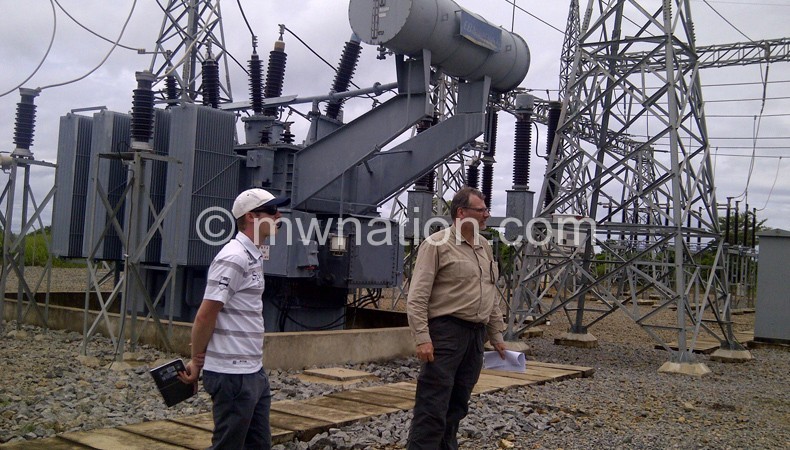IPPs pricing to have a cap—Govt
Independent Power Producers (IPPs) that have signed memoranda of understanding (MoUs) with government will be using the renewable energy feed-in tariff (Refit) policy as a ceiling for determining their prices.
The pronouncement by the Ministry of Natural Resources, Energy and Mining is in realisation of the bone of contention that has been there between IPPs and Escom on the power purchase agreement (PPA).

What is critical is the price at which Electricity Supply Corporation of Malawi (Escom) will be buying power from IPPs to ensure that consumers are not burdened with tariffs as the parastatal is bound to transfer the cost to consumers.
The Refit policy, which is yet to be approved, gives ceilings to tariffs for grid-connected renewable energy-based electricity generation based on technology used.
Energy experts have argued that the introduction of IPPs would push electricity tariffs up as the sole electricity provider, Escom, will be expected to add a mark up when they sell to the final consumer.
“The business model being adopted may not help Malawians because electricity will be more expensive than before. It would have made more sense if the IPPs were to generate their own power and sell directly to consumers,” said the expert.
Already, over 30 IPPs have signed MoUs with government but what remains is to sign PPAs.
Department of Energy Affairs deputy director Joseph Kalowekamo explained that IPPs are supposed to submit an expression of interest (EoI) which is then reviewed by government.
Upon being satisfied with the EoI, government will sign an MoU with the IPP.
He said: “Once an agreement is reached, they are supposed to sign a power purchase agreement which should be approved by Mera [Malawi Energy Regulatory Authority].
“Thereafter, an IPP proposes a tariff based on economic and feasibility studies which they are expected to do after signing an MoU with government. Investment cost will also depend on the studies.”
Kalowekamo said since government is receiving many proposals from unsolicited IPPs, it has decided to develop a roadmap to guide their operations.
Mera’s Feed-in Tariff Policy (Fitp) draft which Business Review has seen recognises that renewable energy sources (RES) such as small hydro, wind, biomass, biogas, solar, geothermal and municipal waste have the potential to increase power supply and diversification of electricity generation sources in Malawi besides income and employment generation.
On the basis of the National Energy Policy (NEP) of 2003, Mera’s Fitp says government is committed to promoting electricity generation from renewable energy and is encouraging potential IPPs to carry out feasibility studies on renewable energy generation on the basis of which PPAs can be negotiated.
In view of the time and resources required to undertake feasibility studies and bring the projects to financial closure, Mera has developed a guiding framework on feed-in tariffs for electricity generated from renewable energy sources.
Mera says its policy will allow IPPs to sell renewable energy sources generated electricity to a distributor at a pre-determined fixed tariff within a given period and that government will guarantee third party access to the grid (transmission and distribution) pursuant to the provisions of the Electricity Act of 2004 for an average period of 20 years.





